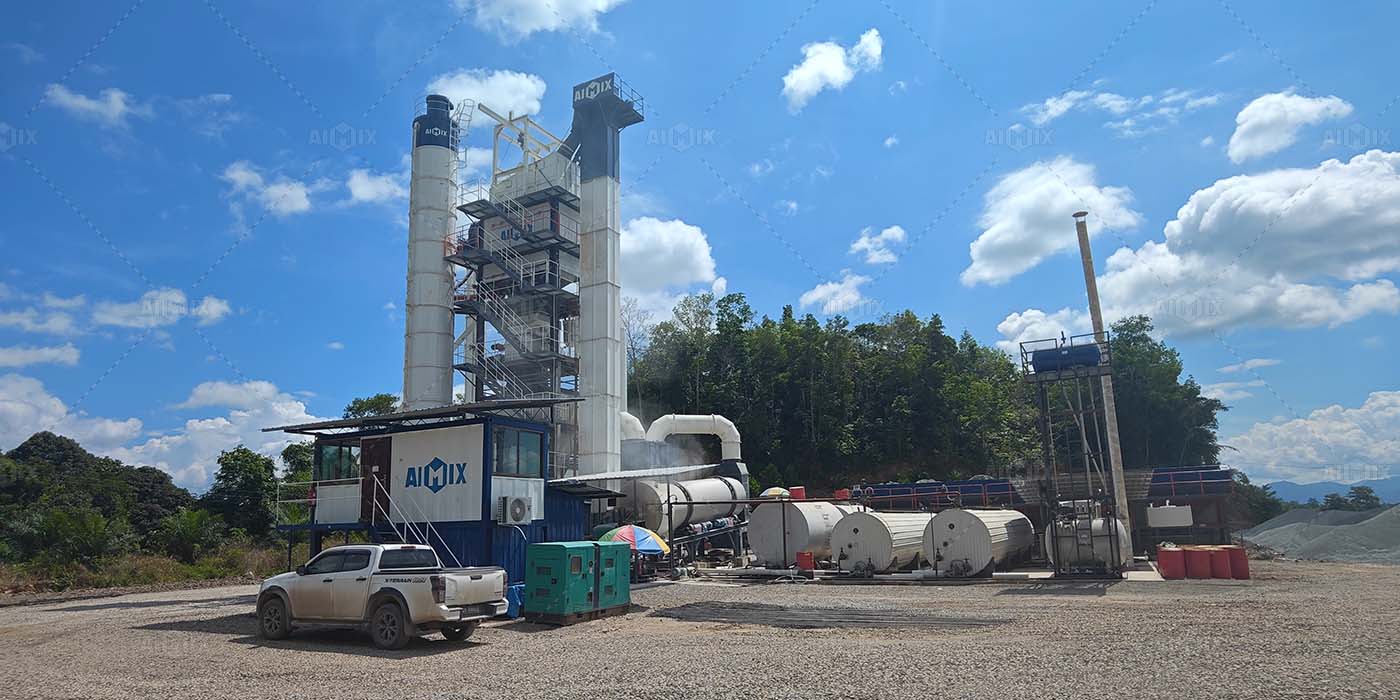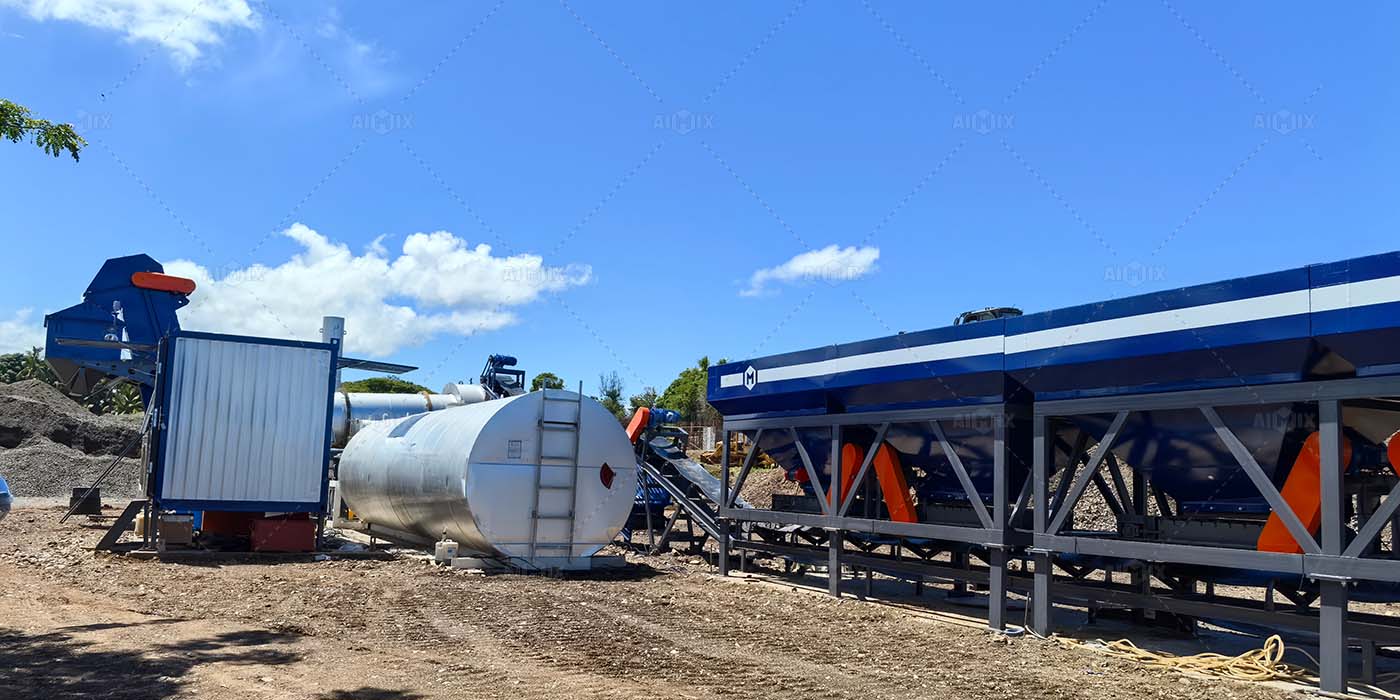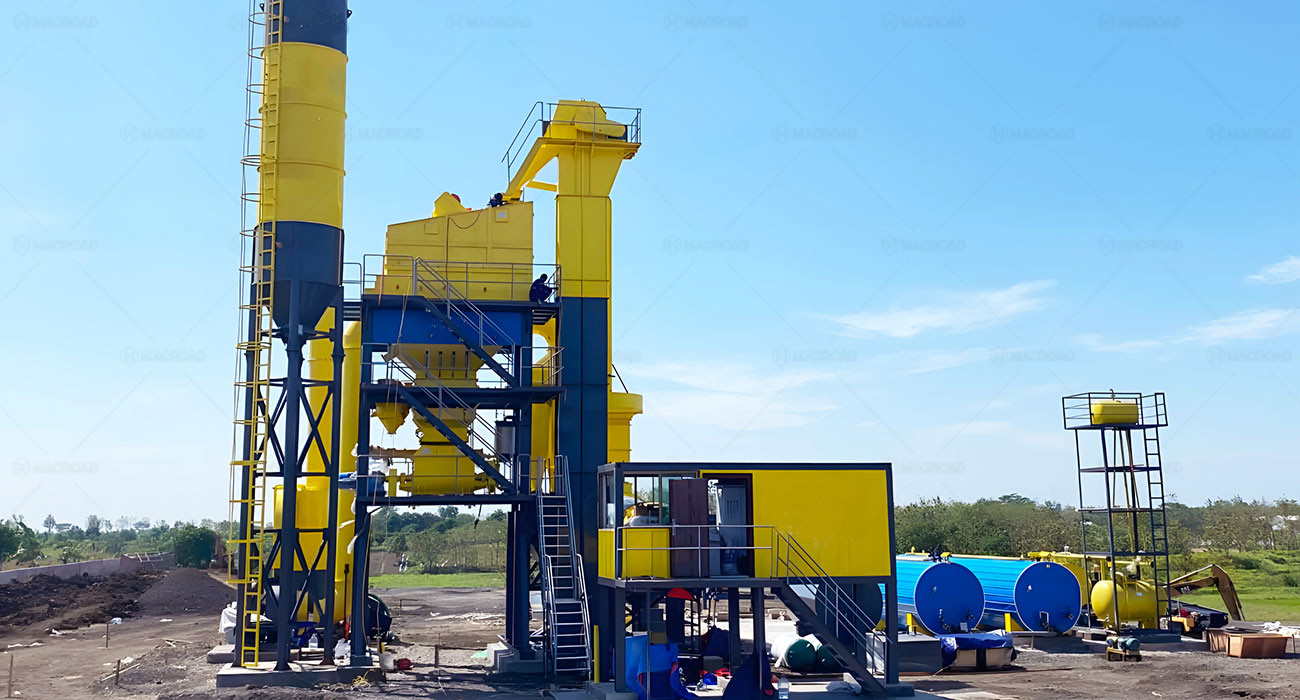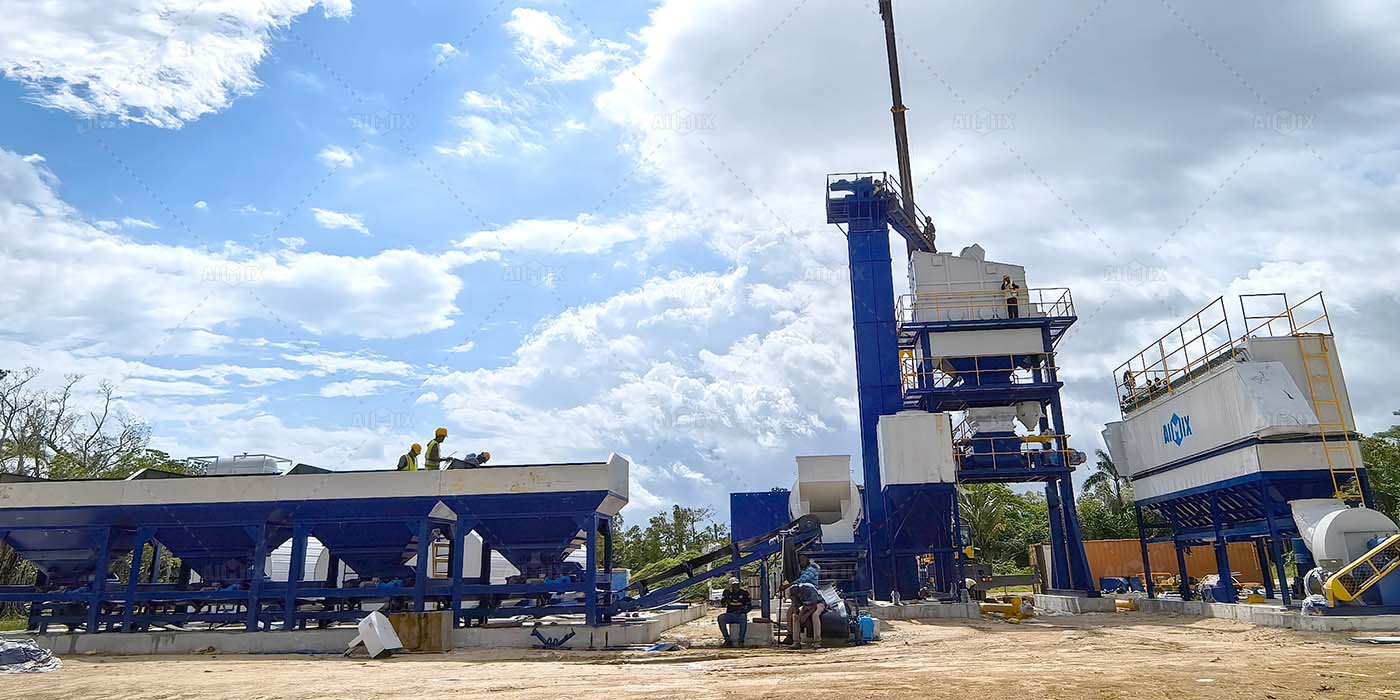Road construction across Southeast Asia is growing fast. Countries like Indonesia, Malaysia, Vietnam, and the Philippines are investing heavily in new highways, city roads, and bridge projects.
For contractors, choosing the right jual asphalt mixing plant is not just about capacity—it is about balancing project size, budget, and long-term operation.
In this post, I will share which TPH asphalt plants are most popular in Southeast Asia, and why contractors prefer them for different road and bridge construction projects.

Why TPH Matters in Road Construction
TPH, or tons per hour, defines the production capacity of an asphalt mixing plant.
For small village roads, a 40TPH to 60TPH asphalt concrete plant may be enough.
For expressways or airports, contractors often choose 120TPH or even 160TPH plants.
This number directly affects how fast you can complete a project, and how consistent the asphalt quality will be.
Therefore, the decision is strategic, not just technical.
Popular Asphalt Plant Capacities in Southeast Asia
Based on current market trends, four main capacity ranges dominate Southeast Asia.
Each matches specific project needs, from local access roads to high-traffic highways.
Let’s look at them one by one.
40TPH–60TPH: For Rural Roads and Local Projects
Many small contractors in Indonesia and the Philippines choose 40TPH or 60TPH asphalt plants.
These plants are compact, easier to move, and cost less to run.
They work best for local government projects, village roads, and maintenance jobs.
Although the output is lower, contractors value the flexibility and lower investment.

80TPH–100TPH: For Medium-Sized City Roads
In Malaysia and Vietnam, 80TPH and 100TPH asphalt plants are common.
These plants provide the balance between production speed and cost efficiency.
Contractors often use them for city road expansion, urban bridges, and medium-scale infrastructure.
They can also handle more demanding schedules while keeping operating costs under control.
120TPH: The Most Popular Choice
Across Southeast Asia, 120TPH asphalt plants are the most popular.
They are versatile enough for both highway construction and large municipal projects.
Many contractors choose this size because it delivers high efficiency without requiring an oversized investment.
For instance, a 120TPH hot mix plant for road construction can support continuous paving on highways while still being practical for mixed-use applications.

160TPH and Above: For Expressways and Airports
For mega projects like expressways, ports, and airport runways, 160TPH or larger plants are the right choice.
Governments in Indonesia and Thailand often demand such capacity to ensure projects stay on schedule.
While the upfront investment is higher, the productivity gain is critical when deadlines are tight and quality standards are strict.
How Contractors Decide Which Plant to Choose
Choosing the right asphalt plant is not only about capacity.
Contractors also compare factors like fuel consumption, mobility, environmental standards, and after-sales service.
For example, a contractor working in mountainous areas may prefer a mobile asphalt plant in the 60TPH to 80TPH range.
On the other hand, a highway contractor will focus on high-output stationary plants, usually 120TPH and above.
In every case, the goal is to match plant output with project scale and future demand.

Key Trends in Southeast Asia Asphalt Plant Market
Several trends are shaping the market today.
First, governments are pushing for greener production, so plants with advanced dust collection and lower emissions are in demand.
Second, mobile asphalt plants are growing in popularity for projects in remote islands or rural provinces.
Finally, automation and digital control systems are helping contractors reduce labor costs and improve mix consistency.
These trends affect which TPH sizes customers prefer, since modern features can make even mid-range plants more competitive.
Conclusion: Choosing the Right Plant for Your Projects
In summary, Southeast Asia’s most popular asphalt plant capacities range from 40TPH for small rural jobs to 160TPH for expressways and airports.
Among them, 120TPH stands out as the most widely used size, offering both efficiency and flexibility.
The key is to align plant capacity with your project scale, location, and long-term business goals.
If you are planning a road or bridge project in Southeast Asia and need advice on selecting the right batch asphalt plant,
we are here to help. With experience across Indonesia, Malaysia, Vietnam, and beyond,
we can recommend the best configuration to meet your needs.
Contact us today to discuss your project and find the asphalt mixing plant that will give you both reliability and competitive advantage.